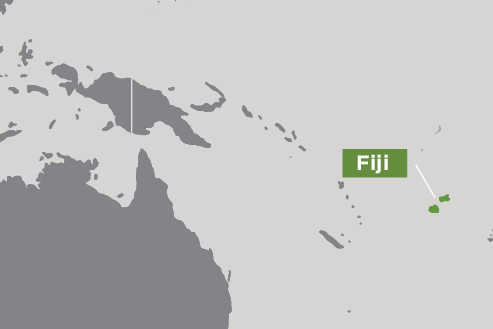Overview
This project aims to co-develop a Tier 2 Monitoring, Reporting and Verification (MRV) system for livestock in Fiji, where the potential for mitigation actions to have significant co-benefits (including for smallholders) has already been identified.
It also aims to build a pathway to integrate GHG mitigation from livestock into Fiji's NDC to provide a formal foundation for a policy that could achieve co-benefits and explore how transferrable aspects of the system may be to other PICs. The project will also build Fiji's capacity to continue to improve the national inventory and support policy development into the future. Fiji is prioritising the development of an accurate National Inventory as part of the Initiative for Climate Action Transparency (ICAT).
The 32-year Fiji Low Emission Development Strategy aims to achieve net zero emissions across all sectors, with a focus on the agriculture sector. The strategy emphasizes the need for strengthening data and Measurement, Reporting, and Verification (MRV) systems to support progress. Fiji's National Determined Contribution (NDC) also emphasizes the need for secure climate finance, which will be enabled by a stronger inventory system.
While numerous mitigation measures with co-benefits have been identified, the effective implementation of these actions and the ability to record GHG mitigation against NDCs requires robust supporting GHG inventory systems. This can be captured, in its simplest form, as a Tier 1 inventory using the Intergovernmental Panel on Climate Change (IPCC) default emission factors (EFs), which are either global or regional in scope. However, if we are to advance the capability of inventories to capture GHG reductions from mitigation action in the agricultural sector, a country-specific Tier 2 approach with local EFs and activity data for different management practices is required because a Tier 1 approach is not sensitive enough to detect changes from most mitigation options. For example, in livestock systems, a Tier 1 approach can only detect methane emission reductions by removing animals and will not detect changes in forage quality, dietary improvements and supplements, animal health and breeding, grazing management, or rumen manipulation.
Expected project outcomes
- Designing field experiments to measure enteric methane using the SF6 equipment
- Setting up, calibrating, and maintaining SF6 equipment
- Setting up SF6 equipment on livestock and the use of control measures
- Creating greater certainty around methane emission estimates from Fijian dairy and beef cattle
- Creating greater certainty in the National Inventory on GHG emissions from the agricultural sector (given the predominance of GHG emissions from livestock)
- Understanding of Fiji's capability requirements for GHG measurement and carbon accounting from livestock systems.



